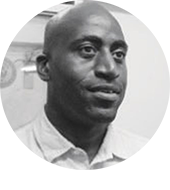
Announcements and disclosures surrounding the impending closure of the Vieux Fort landfill later this year are as unsurprising as they are impactful. A landfill is a critical resource with a useful lifespan easily calculated based on knowledge of the incoming flow of waste material, and the ultimate capacity of the landfill site. The true element of surprise in this story is the short time frame between the announcement of the closure, and the planned date of closure, within the next few months. This is further magnified by the lengthy time required to commission a new landfill; undertaking a serious environmental impact assessment could easily consume several months.
You should be regularly upgrading the software on your computing devices to keep them up to date. Although software may be released with known issues, the upgrade cycle should fix them even before the actual problem is manifested. In the case of the Vieux Fort landfill, the surprise disclosures leave a gaping hole in solving the problem. You can see the many problems ahead — perhaps even smell a rat — in the proposed solution of transporting waste along the length of the country, past many built-up areas, in open backed, open-topped and uncovered vehicles!
In an earlier article (‘Leading the Change’ of Jun 23, 2018), the statistics surrounding our waste were shared, where 45% of our waste was found to be organic material that could be diverted from landfill. Some industries such as ICT produce non-organic waste that must be carefully disposed. Can we say the same of the river de-silting, gutter clearing, and other landscaping operations that we observe on a regular basis?
It is double shame that road clearing operations generate organic waste and contribute to a reduced lifespan of our landfill by the wasteful manner of disposal. Much needed is a renewed interest in composting, recycling, and other methods of diverting waste from landfills, including strong anti-littering initiatives. Recognising the increasing cost of transporting waste, operating landfills, and implementing cleanup efforts represents a good start.
It is lamentable that we might exhaust our use of a resource when its impending demise was predictable. Before our waste problem materialises, let’s hope that we can implement decisive measures to reduce the impact.
Editor’s note: Dr.Lyndell St. Ville is an ICT Consultant based in Saint Lucia. His expertise includes systems analysis, planning, and capacity building. To share your views on this article, contact the author at: www.datashore.net or via The VOICE.












